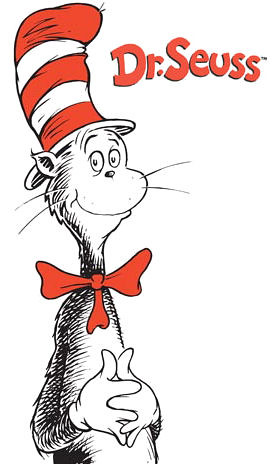For decades March 2, Dr. Seuss’s birthday, has been celebrated in elementary schools throughout America. As schools in America changed significantly within the past year, Dr. Seuss’s birthday has also been a part of that change with the elimination of celebrating the well-known children’s author in schools.

The beloved children’s author, Dr. Seuss, is at the center of a controversy over racist and stereotypical depictions in his many early books and cartoons. Six popular Dr. Seuss books will be taken off the shelves such as “And to To Think That I Saw It on Mulberry Street,” “If I ran a zoo”, “McElligot’s Pool,” “On Beyond Zebra!,” “Scrambled Eggs Super!” and “ The Cat’s Quizzer.” All six of these books contain characters that are identified for stereotyping many different races. Outside of these books, Dr. Seuss’s personal legacy has also come into question. According to the NPR, Seuss wrote an entire minstrel show in college and performed as the main character in full blackface.
For many years, Dr. Seuss was a major author in elementary schools. Education majors at Cabrini had reactions to his book being removed. Sophomore education major, Rylie Butler thinks that is a great idea to take the Dr. Seuss books off the shelf.
“Although little kids might not understand that some of the images and characters that Seuss portrays in his books could be offensive, the images are still inappropriate to be featured in any type of book these days,” Butler said. “Seeing racial stereotypes in their books growing up may make children believe that it is normal and okay. I just think it’s best for society to eliminate these books so it does not train the young minds to be racist.”
Junior education major Bridget O’Neill also believes that taking Dr. Seuss’s books off the shelves is also a smart move. “I do believe canceling these books will help with preventing racism,” O’Neill said.
While Butler and O’Neill think that eliminating these books will better our society, freshman education major Alex Hitchner disagrees. “I really do not believe that canceling Dr. Seuss will prevent racism for our younger generation.”

Well-known South African politician and activist Nelson Mandela said it best, “No one is born hating another person because of the color of his skin, or his background, or his religion. People must learn to hate, and if they can learn to hate, they can be taught to love, for love comes more naturally to the human heart than its opposite.”
Education majors commented on whether these books could influence young children’s attitude toward races.
“I do not think Seuss has ever personally influenced anyone to be racist but he may have painted the picture of certain stereotypes in children’s minds as they read his books as a child,” Butler said.
“I am not quite sure if Seuss has really influenced anyone to be racist but I do believe that being subjected to those books at a young age can definitely lead to future biases,” O’Neill said.
Hitchner also believes that Seuss is not responsible for teaching racism.
“I just personally do not believe that Seuss could influence anyone to be racist,” Hitchner added.


